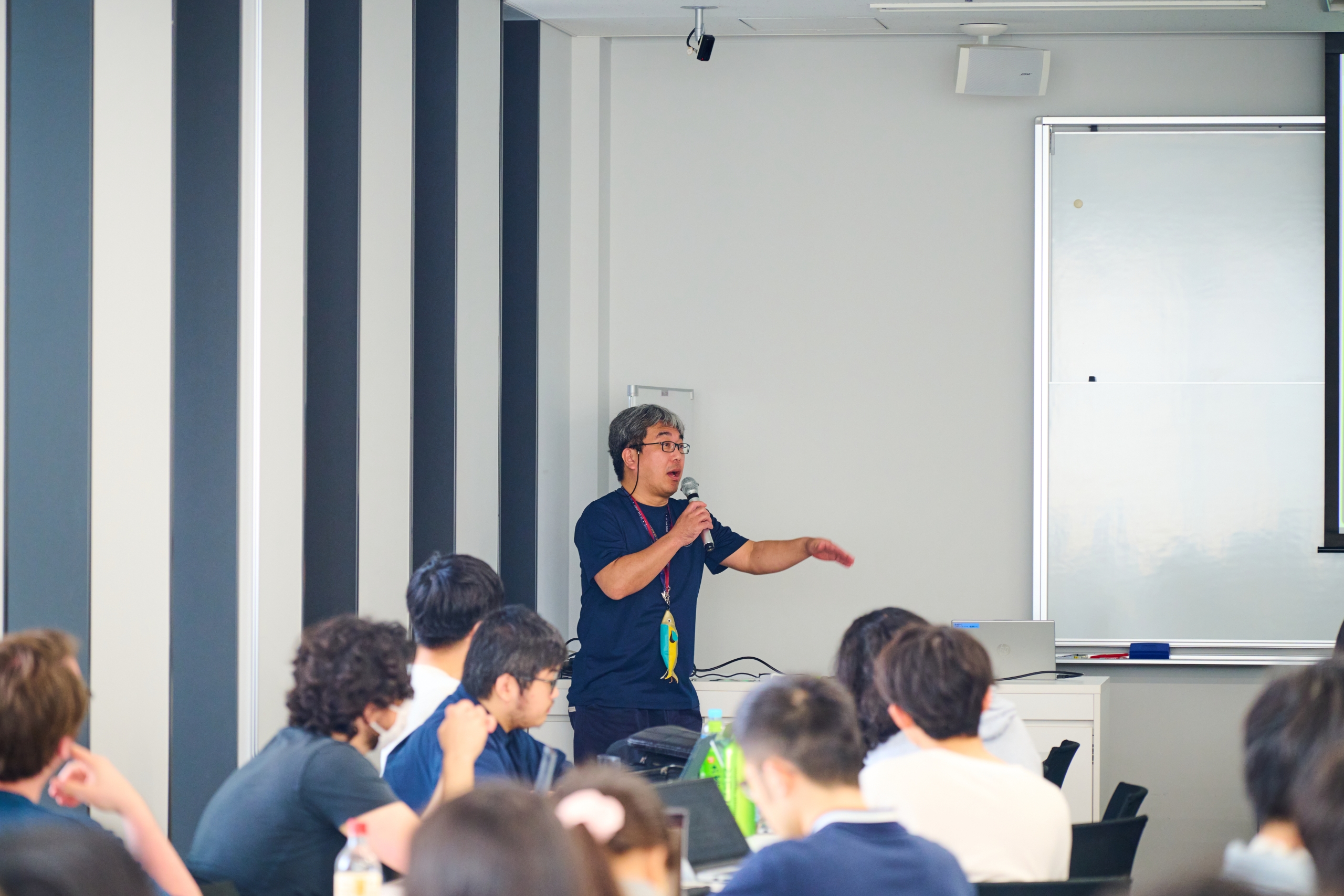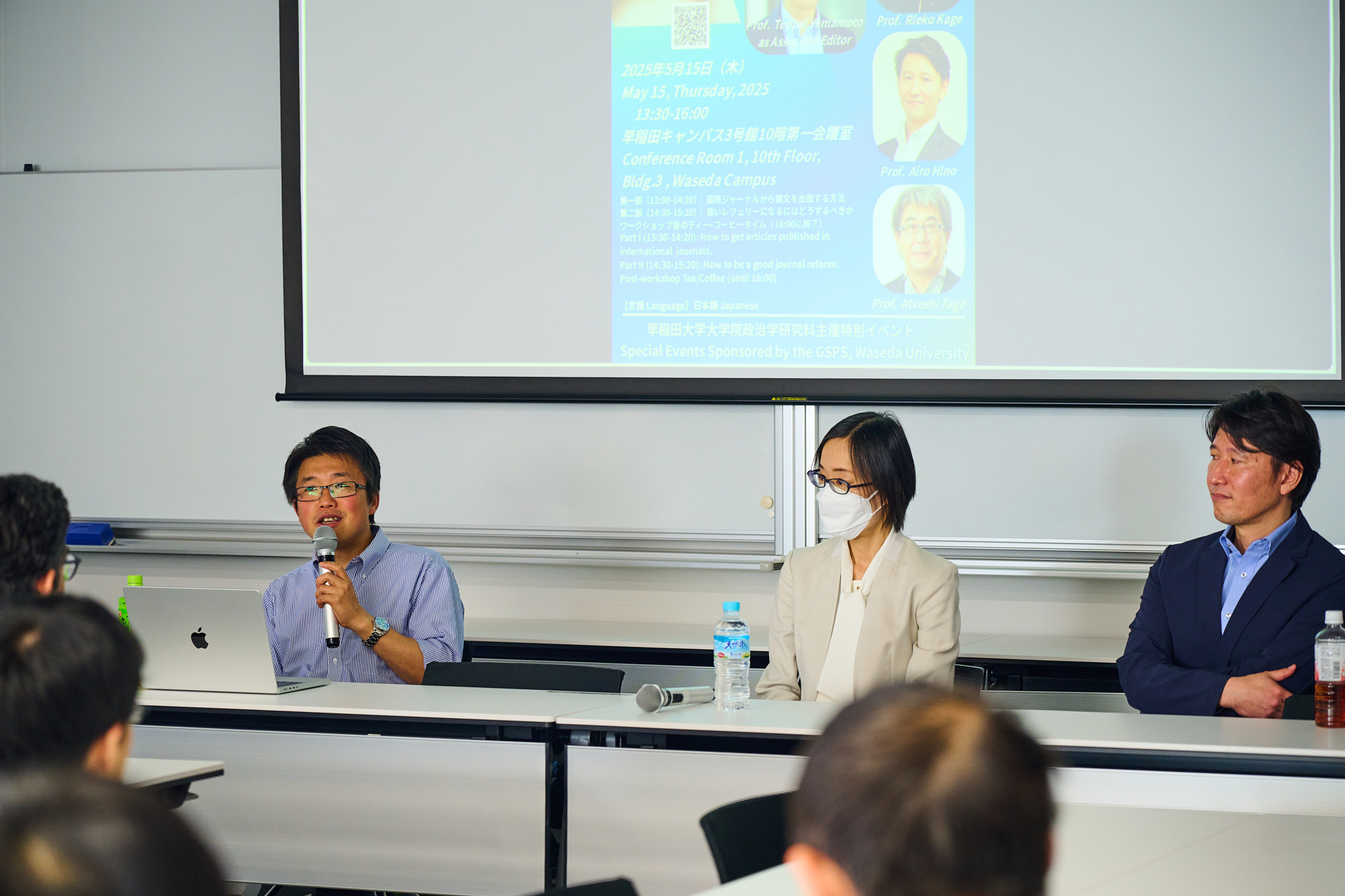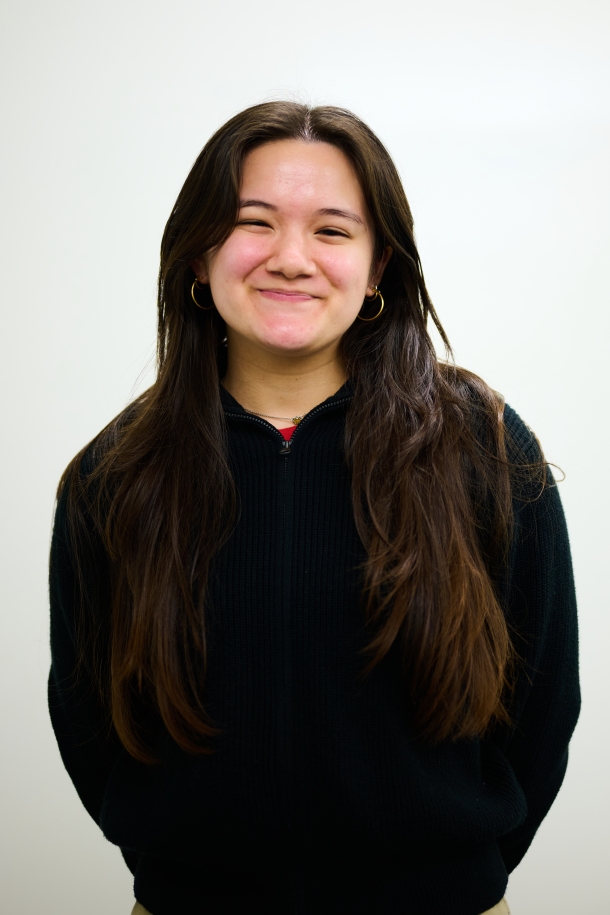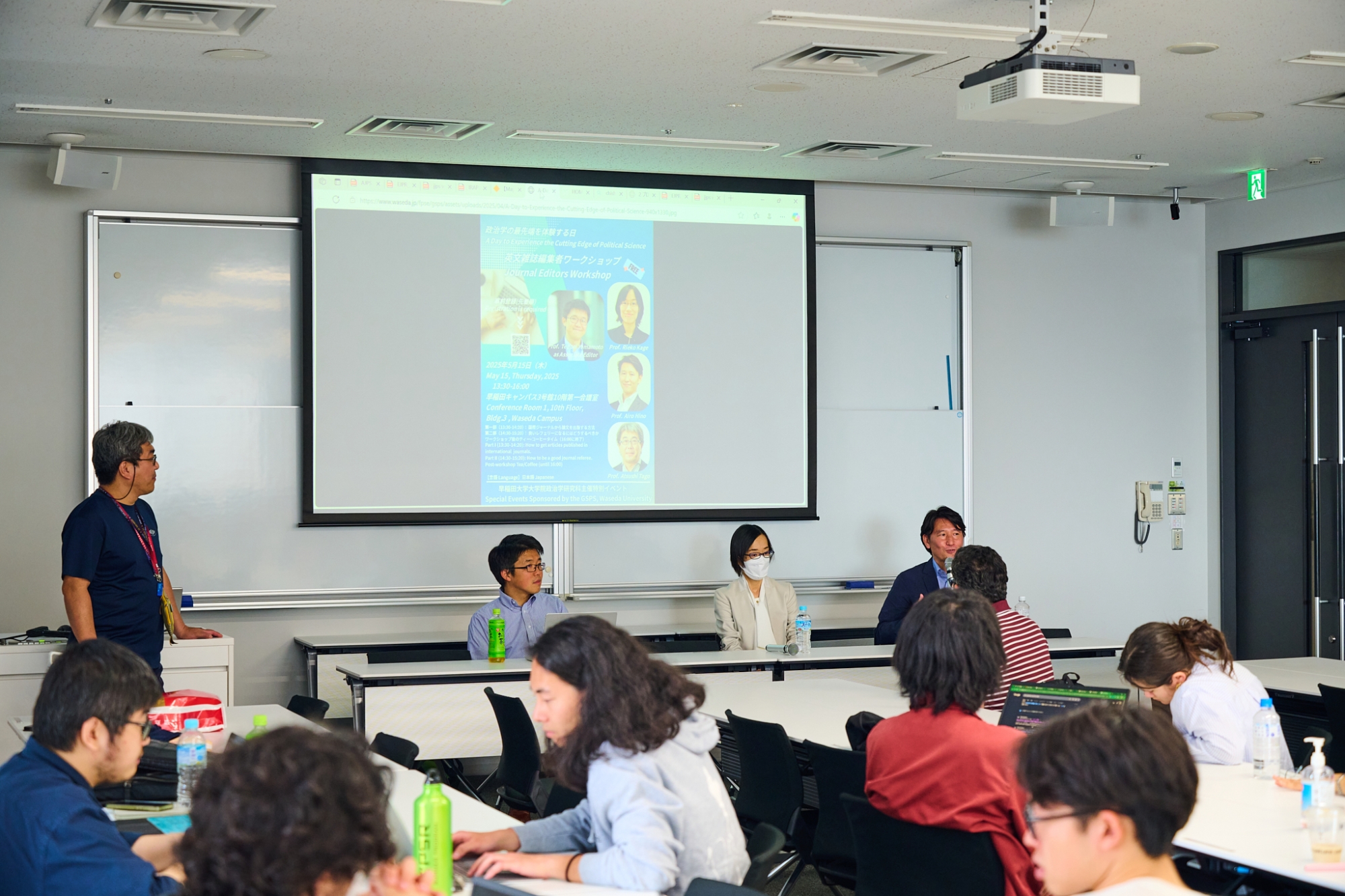Students Experience the Cutting Edge of Political Science Through Academic Journals
Tue, Jun 3, 2025-
Tags
On May 15th, the Graduate School of Political Science at Waseda University and the Atsushi Tago Research Lab collaboratively held “A Day to Experience the Cutting Edge of Political Science–How to get articles published in international journals,” an event catered to students and the general public to learn about some of the major academic journals in the field of political science in Asia, Europe, and the US. The event was moderated by Dr. Atsushi Tago, a professor in the Faculty of Political Science and Economics at Waseda and current Editor-in-Chief of the International Relations of the Asia-Pacific Journal (IRAP.)

Prof. Atsushi Tago
The three speakers at the event presented about their respective journals in the following order: Professor Teppei Yamamoto, incoming Associate Editor of the American Journal of Political Science (AJPS); Professor Airo Hino, Editor of the European Journal of Political Research (EJPR); and Professor Rieko Kage, co-Editor-in-Chief of the Japanese Journal of Political Science (JJPS.)
A Typical Publishing Process for Academic Journals
Upon finding a suitable journal, the researcher’s manuscript will undergo journal review, and they must wait to hear back from the journal on its decision and for the next steps. Depending on the quality of the manuscript and relevance to the prospective journal, the manuscript will either be accepted or rejected. As the process is not linear and heavily depends on the respective journal and editors involved, there may be multiple rounds of refereeing before the journal proceeds with the transition of the manuscript to a published article.
With this underlying process, each of the event speakers discussed their respective journal’s guidelines for when a researcher submits a manuscript. There seemed to be a collective agreement when Professor Tago (IRAP) emphasized that the quality of the written content of a manuscript should be prioritized over its quantity and that the author should be consistent with an original, relevant, and valid argument within their respective research field in political science. Similarly, Professor Yamamoto (AJPS) mentioned that he considers a manuscript’s theoretical and empirical contributions to be highly valued points for an article. All of the speakers mentioned the importance of a manuscript having an original argument in order to make a meaningful contribution to its respective journal.
Moreover, each speaker emphasized that finding the right journal that fits the theme of the manuscript is crucial, not only to increase the chances of it being accepted and published, but also to increase the quality of the reviews by referees who specialize in the manuscript’s same research field. Although some journals, like the EJPR, do not have as strict topic guidelines as other journals, it is best to remain within a broadly relevant field that aligns with the specialties of the limited reviewers of each journal.
Each speaker also discussed their opinions on the qualities of well-qualified and respected journal reviewers. Professor Hino (EJPR) emphasized that not only submitting manuscripts but also contributing to peer reviewing will assist in the author’s rapport with other editors of the journal and raise their recognition. Even if the editor is considered an anonymous reviewer, Professor Kage (JJPS) noted that referees’ reports should be written in a way that not only helps the authors revise their manuscripts but also assist the editors make informed decisions. Additionally, she noted that although reviewers often believe that they are anonymous, they are only anonymous vis-a-vis the authors, not to the editors. Poorly written reviews can thus have reputational consequences for the reviewer.
The remaining speakers also seemed to agree that the speed at which reviewers complete their reviews a primary aspect to maintaining a recognizable reputation. The constant emphasis on timeliness amongst editors could be a dealbreaker for some, if not most, journals. But of course, the content of what is being reviewed is just as significant as the speed at which it is being communicated. The event’s speakers believe that providing fast and civil constructive criticism is the most effective and respectful method of journal reviewing.

From left, Prof. Yamamoto Teppei, Prof. Rieko Kage, Prof. Aino Hino
A Rare Opportunity to Speak Directly with Journal Editors
After each speaker presented their own journals and observations, the event invited the audience to ask questions and have an open discussion. Students curious about their individual prospective publishing opportunities asked about details regarding the manuscript application process. Some members of the audience even asked the speakers questions in English–to which the speakers also responded in English–which revealed an underlying standard of internationalistic capability for the speakers’ associated journals. This rare opportunity to directly speak with professional editors in political science highlighted the invaluableness of this publicly open event at Waseda University.
At the event, not only was the audience able to learn and experience the different guidelines and priorities that each journal sets directly from their editors and contributors, but they were also able to emerge themselves in the field from their own level of understanding of political science to learn practical and reputable skills in maintaining professional rapport and successfully present academic competence as a prospective editor, author, and reviewer of a political science journal. As a student at the School of International Liberal Studies studying history, this event was an eye-opening experience for me to observe career opportunities outside of my own academic field. While I am not affiliated with the Faculty of Political Science and Economics, I was still able to make connections to my own academic concentrations and apply advice from each of the speakers to my own prospective career search.
This article was written by the following Student Contributor:
Maika Kinoshita Nebgen (School of International Liberal Studies)















